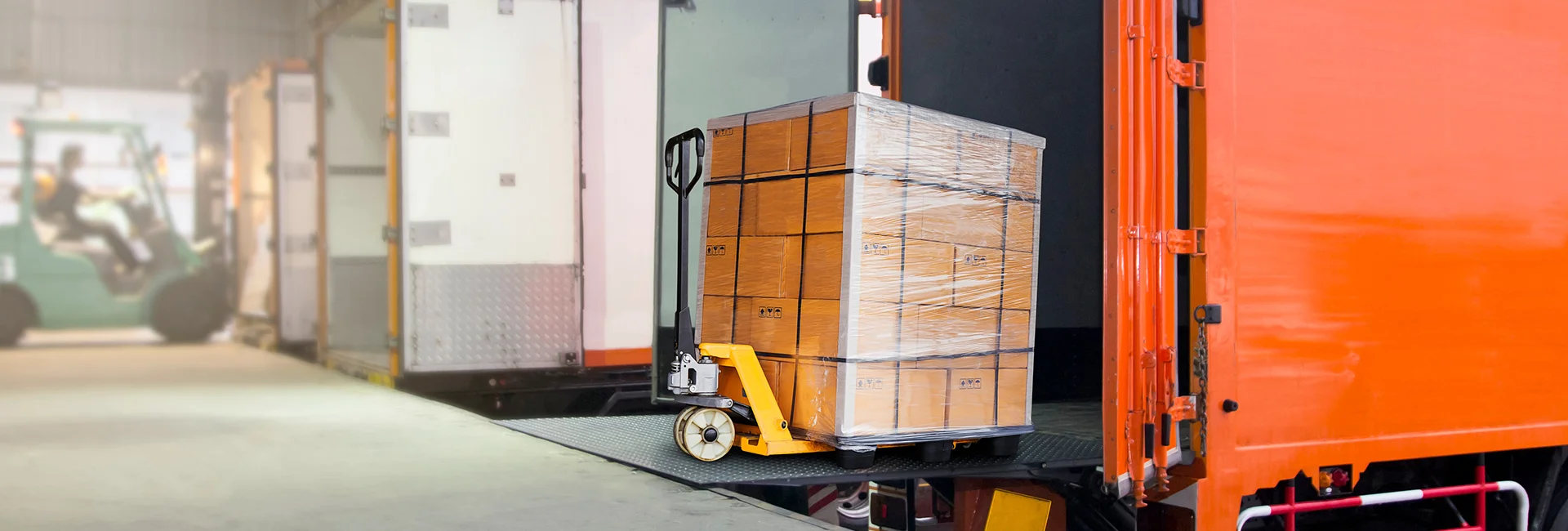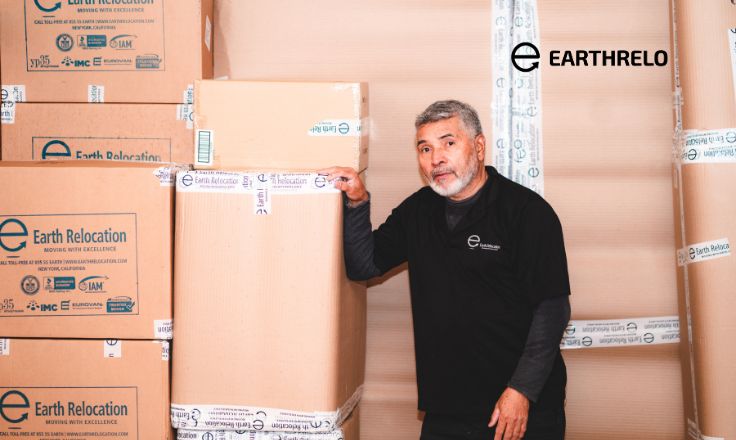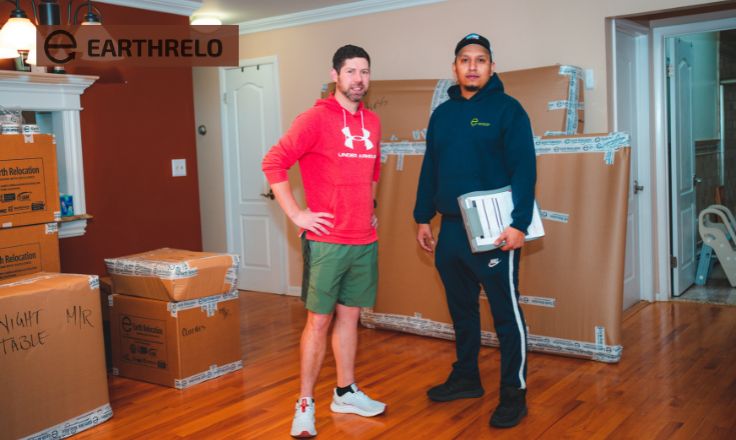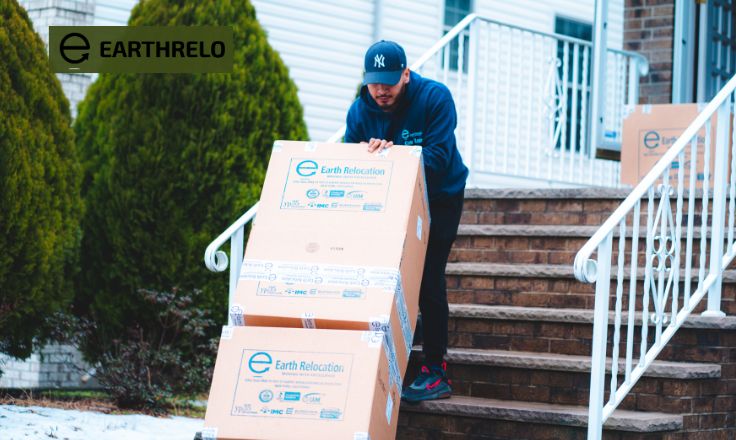- February 7, 2023
When it comes to international relocation, shipping large items can be one of the most challenging aspects. Not only do you need to navigate different customs regulations and transportation methods, but you also need to ensure that your items arrive at their destination in good condition. This is where Earthrelo comes in. As one of the fastest-growing international moving companies, they provide shipping and relocation services to expatriates and private clients. In this blog, we will provide a comprehensive guide to understanding the process of shipping large items with a relocation company, with a particular focus on Earthrelo’s services.
Factors to Consider Before Shipping Large Items
Before you start the shipping process, there are several factors to consider. These include:
A. Destination country’s regulations – Different countries have different customs regulations and import requirements, which can impact the shipping process. For example, some countries may prohibit certain items from entering the country, while others may require additional documentation or permits. It is important to research the destination country’s regulations before shipping your items.
B. Type of large items – The type of items you are shipping will also impact the shipping process. For example, fragile items may require special packaging or handling, while oversized items may require a specific mode of transportation. It is important to discuss your specific shipping needs with your relocation company to ensure that your items are shipped safely and efficiently.
C. Insurance coverage – Insurance coverage is another important factor to consider. Your relocation company should offer insurance coverage for your items during transit, but it is important to check the coverage limits and deductibles. You may also want to consider purchasing additional insurance coverage for high-value items.
D. Shipping costs – Shipping costs can vary depending on several factors, including the weight and size of your items, the destination country, and the mode of transportation. It is important to get a detailed quote from your relocation company to understand the total shipping costs.
E. Time frame – The time frame for shipping large items can also vary depending on several factors, including the destination country’s customs regulations and the mode of transportation. It is important to discuss the expected time frame with your relocation company and plan accordingly.
Preparing for the Shipping Process
Once you have considered the above factors, it is time to prepare for the shipping process. This includes:
A. Packing and crating – Proper packing and crating is essential to ensure that your items arrive at their destination in good condition. Your relocation company should provide guidance on how to pack and crate your items, including any special requirements for fragile or oversized items.
B. Labelling – Proper labelling is also important to ensure that your items are easily identifiable during transit. This includes labelling the contents of each box and marking fragile items as such.
C. Documentation – Proper documentation is a crucial aspect of the shipping process for large items. Without the necessary paperwork, your items may be delayed or even refused entry at the destination country’s customs. This can result in additional fees, storage costs, and potentially even loss or damage to your items.
Your relocation company should provide guidance on the required documentation and assist with the paperwork. The following are some of the essential documents you will need to prepare:
1. Bill of Lading (BOL) – A Bill of Lading is a legal document that serves as a contract between the shipper and carrier. It includes details such as the destination, shipment date, and contents of the shipment. The BOL is required for customs clearance and is also used by the carrier to ensure that the correct items are shipped to the correct destination.
2. Commercial Invoice – A Commercial Invoice is a document that lists the value of the goods being shipped and is required for customs clearance. It includes details such as the quantity, description, and value of the items being shipped. The Commercial Invoice is used to determine any taxes or duties that may be applicable for the shipment.
3. Packing List – A Packing List is a detailed list of the items being shipped and is used to ensure that the correct items are loaded onto the shipping container. It includes details such as the weight, dimensions, and quantity of each item.
4. Export Declaration – An Export Declaration is required for shipments leaving the United States and is used to monitor exports for statistical purposes. It includes details such as the exporter’s name and address, the destination country, and the value of the items being shipped.
5. Import Declaration – An Import Declaration is required for shipments entering a country and is used by customs to assess any taxes or duties that may be applicable. It includes details such as the importer’s name and address, the country of origin, and the value of the items being shipped.
Your relocation company should provide guidance on any additional documents that may be required depending on the destination country’s regulations. It is important to ensure that all documents are properly completed and submitted in a timely manner to avoid any delays or issues with customs clearance.
In addition to assisting with the necessary paperwork, your relocation company should also provide updates on the status of your shipment and any issues that may arise during the shipping process. Clear communication and proper documentation can help ensure that your items arrive at their destination safely and efficiently.
D. Communication with relocation company – Clear communication with your relocation company is essential throughout the shipping process. This includes providing detailed information about your shipping needs and staying in touch throughout the transit process.
Shipping Process
The shipping process typically involves several steps, including:
A. Transportation methods – Your relocation company will arrange for transportation of your items, which may include air, sea, or land transportation depending on the destination country and the size of your items. Your relocation company should provide guidance on the best transportation method for your specific needs.
B. Customs clearance – Customs clearance is required for all items entering a new country. Your relocation company should assist with customs clearance and ensure that all required documentation is in order.
C. Delivery options – Your relocation company should provide various delivery options depending on your specific needs. This may include door-to-door delivery, terminal delivery, or a combination of both. It is important to discuss your preferred delivery option with your relocation company and ensure that it aligns with your time frame and budget.
Common Challenges and How to Overcome Them
Even with proper preparation and communication, there may be some challenges that arise during the shipping process. Some common challenges include:
A. Delays – Delays can occur for various reasons, including customs clearance, transportation issues, or unexpected weather events. Your relocation company should keep you updated on any delays and work to minimize the impact on your shipping timeline.
B. Damage during transit – Despite proper packing and crating, there is always a risk of damage during transit. Your relocation company should provide insurance coverage for your items and work to resolve any issues that arise during transit.
C. Additional fees – Additional fees, such as customs duties or taxes, may be required depending on the destination country. Your relocation company should provide guidance on any additional fees and assist with the payment process.
D. Communication issues – Clear communication is essential throughout the shipping process, but communication issues can still occur. It is important to discuss your preferred method of communication with your relocation company and ensure that they are responsive and easy to reach.
Post-Delivery – After your items have been delivered, there are a few things to consider:
A. Inspection of items – It is important to inspect your items upon delivery to ensure that they arrived in good condition. If there are any issues, be sure to document them and file a claim with your relocation company’s insurance provider.
B. Filing insurance claims – If there is any damage during transit, it is important to file a claim with your relocation company’s insurance provider. Your relocation company should provide guidance on the claims process and work to resolve any issues as quickly as possible.
C. Feedback and review of relocation company – After the shipping process is complete, it is important to provide feedback on your experience with your relocation company. This can help improve their services and assist other clients in making informed decisions.
Conclusion
In conclusion, understanding the process of shipping large items with a relocation company is essential for a successful international relocation. By considering factors such as destination country regulations, item type, insurance coverage, shipping costs, and time frame, you can ensure that your items arrive at their destination safely and efficiently. With proper preparation, communication, and post-delivery follow-up, you can minimize the risk of challenges and ensure a positive relocation experience. Earthrelo’s services can provide invaluable assistance throughout this process, and we highly recommend their services for your international relocation needs.





